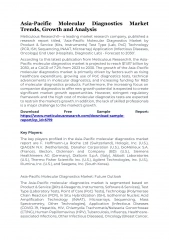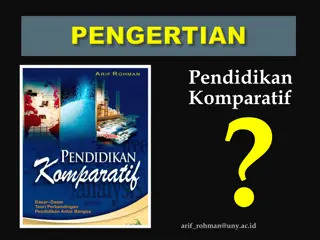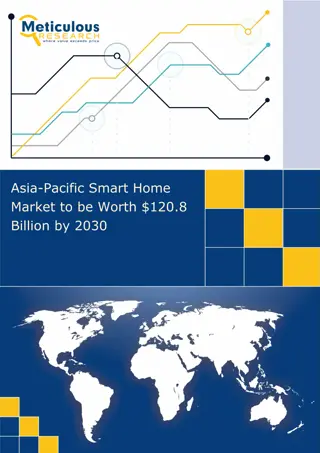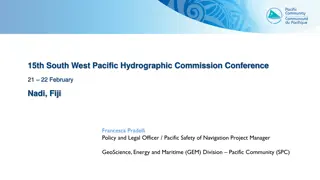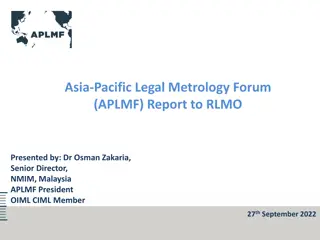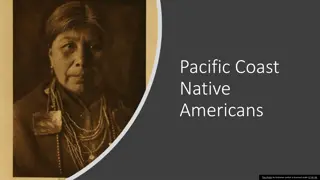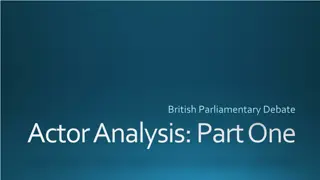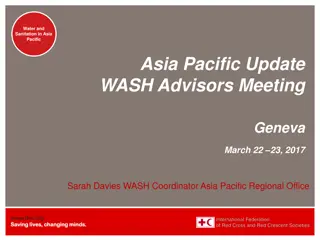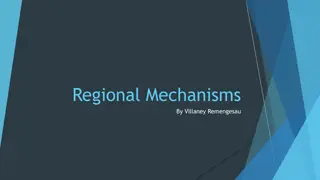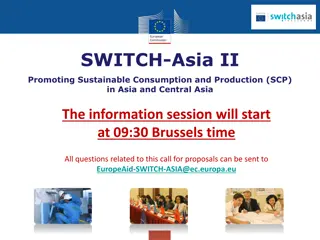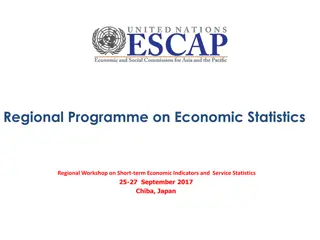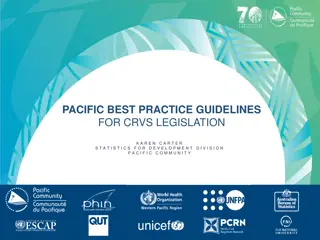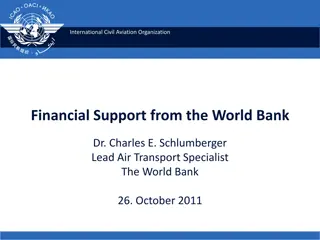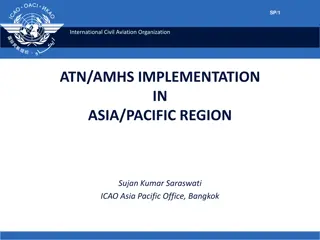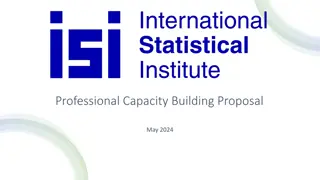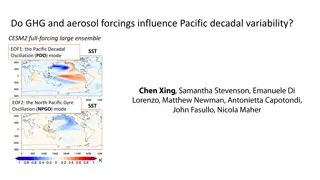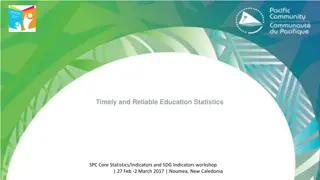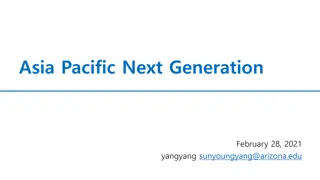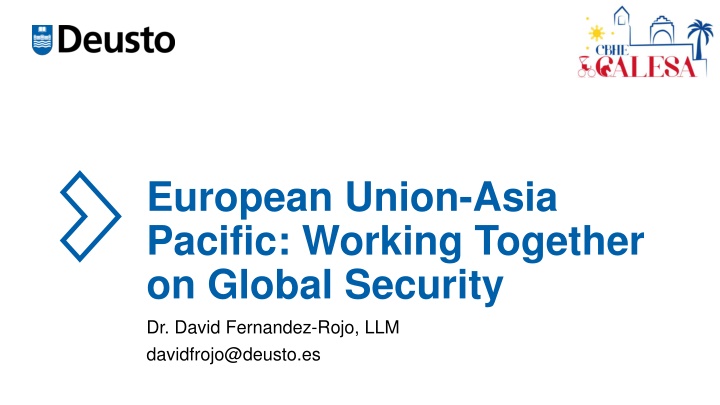
EU as Security Actor in Asia-Pacific
With challenges from Russia and China, the EU aims to enhance security synergies with Asia-Pacific and play a more robust role in addressing pressing security issues in the region.
Download Presentation

Please find below an Image/Link to download the presentation.
The content on the website is provided AS IS for your information and personal use only. It may not be sold, licensed, or shared on other websites without obtaining consent from the author. If you encounter any issues during the download, it is possible that the publisher has removed the file from their server.
You are allowed to download the files provided on this website for personal or commercial use, subject to the condition that they are used lawfully. All files are the property of their respective owners.
The content on the website is provided AS IS for your information and personal use only. It may not be sold, licensed, or shared on other websites without obtaining consent from the author.
E N D
Presentation Transcript
European Union-Asia Pacific: Working Together on Global Security Dr. David Fernandez-Rojo, LLM davidfrojo@deusto.es
Can the EU be an Influential Actor in Security Issues in the Asia-Pacific Region? Enhancing synergies with Asia-Pacific countries A New Strategic Agenda for the EU: 2019 2024 Ursula von der Leyen s Commission With increasing internal and external challenges, the EU shall play a role as a security actor However, the EU is viewed as a minor player in Asia-Pacific security due to its limited powers in the CFSP There are disparities between Member States as to a more robust EU security policy towards Asia Pacific Member States are facing pressing security issues from Russia, and others have become economically dependent on China opposing EU s criticisms of its human rights abuses or territorial violations Tensions with Indonesia and Malaysia over palm-oil production EU s criticisms of human rights abuses and undemocratic tendencies in the Philippines, Cambodia and Myanmar
Determining the EUs Regional Approach: From Asia-Pacific to Indo-Pacific The U.S., Australia, Japan and India Free and Open Indo-Pacific Strategy freedom of navigation and rule of law economic development peace and stability EU s approach to the Indo-Pacific is the same as to Asia-Pacific. Reasons: 1) Distance: the EU Global Strategy of 2016 prioritizes relations and commitments with neighboring countries 2) The undefined nature of the concept Although the EU has no specific Indo-Pacific strategy, it is interested in the region EU views India as a crucial pillar in a multipolar Asia 6 of the EU s 10 most important trading partners are located in Asia Pacific The Indian Ocean has become the world s most important waterway for international trade The EU s Atalanta naval operation in the Indian Ocean has been ongoing since 2008 (fight against piracy in the Horn of Africa) 3 out of the 17 military and civilian missions currently deployed by the EU are in the Indo-Pacific
Security Cooperation in Practice: Beyond the Military Arena Cooperation on security matters is developed through ASEAN (Association of South East Asian Nations) and through bilateral dialogues with Asian and Pacific partners 2016 EU Global Strategy recognizes Asia s importance for Europe, highlighting a direct connection between European prosperity and Asia security 2018 The Strategy on Connecting Europe and Asia and Council Conclusions on Enhanced EU Security Cooperation in and with Asia Maritime security Cybersecurity Counterterrorism Hybrid threats Conflict prevention Proliferation of Chemical Biological Radiological and Nuclear weapons Development of regional cooperative orders
EU-ASEAN Security Dialogue: Acting Together in a Region of Competing Powers The EU and ASEAN have been working together since 1972, formalizing their relations at a ministerial level in 1977 The EU is seen by the ASEAN countries as an economic and trade power, rather than as a security actor This low profile is largely due to the current state of the CFSP, including the CSDP, which remains an area of intergovernmental cooperation between Member States However, security has become a broader concept, encompassing non-traditional risks that are unpredictable and/or unexpected, have both internal and external elements and ramifications, and are frequently interwoven with traditional security threats It is in these domains that the EU and ASEAN have much to offer and can become credible regional co-actors contributing to peace and stability
EU-ASEAN Security Dialogue: Acting Together in a Region of Competing Powers High Level Dialogue on Maritime Cooperation, 2013 ASEAN Program on Migration and Borders Management EU Centers of Excellence on Chemical, Biological, Radiological and Nuclear Risk Mitigation In 2019, the EU and ASEAN launched the High Performance Computing (HPC) initiative with the support of the Enhanced Regional EU-ASEAN Dialogue Instrument (E-READI), a program that facilitates cooperation and dialogue between the EU and ASEAN in policy areas of joint interest. Since July 2020, HPC activities are supporting Covid-19 research and innovation The EU is collaborating with ASEAN countries on multilateral security bodies ASEAN-EU Ministerial Meeting (AEMM) ASEAN Regional Forum (ARF) Indian Ocean Rim Association (IORA) Asia-Europe Meeting (ASEM) Regional Cooperation Agreement on Combating Piracy and Armed Robbery against Ships in Asia (ReCAAP)
EU-ASEAN Security Dialogue: Acting Together in a Region of Competing Powers EU s security engagement in the region contributes to trust-building and capacity-building However, there is still scope to strengthen co-regional dialogue on non- traditional security and consolidate existing engagements EU and ASEAN share a commitment to promote multilateralism and the rules-based international order. Both face interconnected security issues that require multilateral, non-military solutions. EU has declared its intention to apply for observer status at the Experts Working Groups (EWGs) within the ASEAN Defense Ministers Meeting Plus (ADMM+) The activity of these EWGs focuses on non-traditional security risks: humanitarian assistance and disaster relief, maritime security, military medicine, counter-terrorism, peacekeeping operations, humanitarian mine action and cybersecurity
Bilateral Strategic Partnerships in Security Affairs The EU has concluded strategic partnerships with four Asian states: China (2003), Japan (2003), India (2004) and South Korea (2010) China: China added a defense component to its strategic partnership with the EU in 2010 In 2012, the EU-China High-Level Strategic Dialogue was established EU and China agreed on the 2020 China-EU Strategic Agenda for Cooperation EU-Chinese relations have always been characterized by a combination of deep differences and converging trends The European Commission and the European External Action Service have characterized China as a partner, a competitor and a systemic rival
Bilateral Strategic Partnerships in Security Affairs Japan: EU-Japan High-Level Group was set up in 2010 In 2019, an EU-Japan strategic partnership agreement was adopted These developments were facilitated by a shared vision of values, such as democracy, rule of law, human rights, market economy and free trade The Strategic Partnership covers political dialogue and policy cooperation, as well as cooperation on global non-traditional security challenges, including the environment and climate change, development policy and disaster relief Without taking sides on territorial conflicts, the EU is also showing an increased interest in the security of the Indo-Pacific and has upheld Japan s vision of a free and open Indo-Pacific
Bilateral Strategic Partnerships in Security Affairs India: Bilateral framework has contributed to extending regular contacts and forums at which the two partners consult each other and address global issues Besides economic and trade issues, both partners feel the need for stronger mutual engagement on security matters in an unstable international order EU and India still have to overcome some significant obstacles Different geopolitical priorities Disparities in socio-economic development
Bilateral Strategic Partnerships in Security Affairs South Korea: South Korea became the first Asian country with which the Union concluded a FTA The FTA came into force provisionally in 2011 and was ratified in December 2015 In addition to the FTA, the Framework Agreement, signed in 2010 and in force since June 2014 and Korea s participation in EU s crisis management operations form the main basis for bilateral cooperation on political and security matters The strategic partnership between South Korea and the EU is as yet underdeveloped, but both partners share an interest in further expanding bilateral dialogue on political and security issues in coming years
Internal and External Security Challenges: EU Migration as a Case Study The refugee crisis highlighted the growing nexus between the AFSJ and the CSDP, as well as the need to establish a reinforced coordination between the internal and external dimensions of security at the EU level The CSDP increasingly addresses volatile, hybrid and internal security challenges such as terrorism, instability in the neighboring territories of the EU or illegal migrant smuggling The inherently cross-border nature of these challenges demands the reinforcement of the bond between the internal and external dimensions of security, and the promotion of greater coherence between the AFSJ and the CSDP
Internal and External Security Challenges: Migration in the EU as a Case Study The Global Strategy asserted the growing interdependence and need for integration of the internal and external dimensions of security That is, some threats, given their cross-border nature, require tighter institutional links between our external action and the internal area of freedom, security and justice The Global Strategy designated as crucial the promotion of an effective cooperation between the CSDP missions and the AFSJ decentralized agencies such as FRONTEX and EUROPOL in order to enhance border protection and maritime security in order to save more lives, fight cross-border crime and disrupt smuggling networks The EU Action Plan against Migrant Smuggling promoted the establishment of a CSDP military mission, Operation Sophia, as well as to reinforce FRONTEX and EUROPOL s operational tasks in order to collect, analyze and exchange information on the illegal smuggling of migrants The European Agenda for Migration included migration and the promotion of an effective border management in the Mediterranean within the mandate of the on-going CSDP missions
Evolution of the Operational Tasks of FRONTEX 2004 FRONTEX RABIT & Central Record of Available Technical Equipment (CRATE) 2007 Acquire or lease its own technical equipment EBGT 2011 2016 Reg. 2016/1624 EBCG 17/04/2019 EP adopted 2018 COM proposal Nov. 2019 Reg. 2019/1896 EBCG 2.0 2019
The Executive Powers of the EBCGs Team Members Regulation 2019/1896 confers executive powers, subject to the authorisation of the Member State that is hosting the operation, to the EBCG s standing corps deployed as team members - - - - - - Verify the identity and nationality of arriving migrants Authorise or refuse of entry upon border check Stamp of travel documents Issue or refusal of visas Patrol Register fingerprints While these executive powers may ensure a more effective, integrated and supranational administration of the European external borders, these activities also entail a significant, and difficult to control, degree of discretion
Evolution of the Operational Tasks of the EU Agency for Asylum Establishment of EASO 2010 First EASO Operating Plan to support the Greek Asylum System 2011 EASO implementation agenda and the hotspot approach played a central the role EU in the of Migration 2015 2016 COM Proposal 2018 COM Proposal 2019 2021 Regulation 2021/2303
Regulation 2021/2303 - EUAA Quick deployment of operational assistance to Member States A permanent asylum reserve pool of 500 Member State officials A broader asylum training curriculum for national officials Fundamental Rights Officer A more independent EUAA Consultative Forum EUAA liaison officers in EU Member States, as well as the possibility to do so in non-EU countries Enhances the agency s work with non-EU countries to support asylum and reception capacity building Establishes a complaints mechanism Establishment of a Monitoring Mechanism in the coming years
EUROPOL Europol is the European Union s law enforcement agency Organized crime, terrorism and other forms of serious crime On 22 February 2016, Europol launched the EMSC The EMSC aims to proactively support EU Member States in dismantling criminal networks involved in organized migrant smuggling Five main areas for action: 1) operational support, coordination and expertise 2) strategic support to EU Member States and partners 3) platform for EU Member States and partners 4) support to the European Union Regional Task Force (EURTF) and Hotspots 5) deployments on-the-spot via Europol Mobile Investigation Teams (EMIST) and Europol Mobile Analysis Teams (EMAST)
Operation Sophia: Lessons for the Security Challenges that the Asia-Pacific Region Faces Cross-border threats like illegal migrant smuggling demand a change in the classic conception of national sovereignty since a truly effective management of borders and migratory flows can only be achieved through the promotion of solidarity and a coordinated response at the European level Operation Sophia constituted the first involvement of FRONTEX and EUROPOL in a EU naval military operation expressly centered on migratory matters and the management of external borders in the Mediterranean Operation Sophia aimed to disrupt the business model of human smuggling and trafficking networks in the Southern Central Mediterranean, achieved by undertaking systematic efforts to identify, capture and dispose of vessels and assets used or suspected of being used by smugglers or traffickers ( ) .
Bilateral Cooperation between Operation Sophia and FRONTEX Regulation 2019/1896 FRONTEX states that consistency between the European Integrated Border Management and the CSDP must be ensured (Recital 76). Article 8(3) Council Decision (CFSP) 2015/778 of 18 May 2015 on Operation Sophia required the EBCG and the military mission to develop a close operational coordination by exchanging information, developing common training and a communication mechanism, as well as collecting evidence Operation Sophia and the EBCG shared and designed operational plans and constantly exchanged information and tactical decisions Operation Sophia and the EBCG s Liaison Officers were in charge of developing daily operational and analytical briefings, sharing and confirming the situational picture and position of the deployed vessels and aircrafts, supporting the planning of patrolling activities and, assisting on the collection of information from migrants rescued
Bilateral Cooperation between Operation Sophia and EUROPOL Collaboration between the EMSC and Operation Sophia centered on developing joint training, detecting new criminal trends and monitoring their evolution The EMSC may deploy specialized investigative and analytical teams in the territory of the requesting Member State that requires assistance in dismantling the smuggling networks On 2 July 2019, an operational platform coordinated by the EMSC was established with the aim of intensifying the fight against criminal networks involved in the illegal smuggling of migrants Joint Liaison Task Force Migrant Smuggling and Trafficking in Human Beings (JLT- MS)
Multilateral cooperation between Sophia and FRONTEX and EUROPOL: Crime Information Cell On 4 May 2018, the Council adopted an amending decision on Operation Sophia to establish a CIC tasked to facilitate the receipt, collection and transmission of information, including personal data, on human smuggling and trafficking, the arms embargo on Libya, illegal trafficking ( ), as well as crimes relevant to the security of the operation . The CIC was officially launched on 5 July 2018 when five specialized personnel of FRONTEX, EUROPOL and Operation Sophia were deployed on board the Flagship of the military Operation Since then, both FRONTEX and EUROPOL s EMSC deployed its staff for periods between two and three weeks to the CIC located on Operation Sophia vessels The CIC thus centered on information sharing and set the path for greater multilateral and institutionalized operational cooperation between FRONTEX and EUROPOL and CSDP missions like Operation Sophia
Conclusion In the current context of increasing internal and external security challenges, the EU is striving to play a more major role as a security actor, in line with the priorities identified by its 2016 Global Strategy and the more recent Strategic Agenda 2019 2024 However, the greatest contributions the EU can offer in Asia Pacific are in non-traditional security issues Climate change, sustainable development, maritime connectivity, migration management and, more recently, pandemics management, are some of the areas where the EU can exert a regulatory influence through its diplomatic skills, economic tools and civilian capabilities The EU has the potential to play a stabilizing role by mediating in tensions between major powers The EU and ASEAN dialogue offers an opportunity to foster a co-regional cooperation to manage security challenges in an increasingly competitive Asia-Pacific region The EU and ASEAN have been working on many non-traditional security issues, but there is still a wide margin for extending co-regional cooperation The EU must aim to achieve tangible results in security terms, making cooperation a two-way street
Thank you for your attention! Dr. David Fernandez-Rojo, LLM davidfrojo@deusto.es

